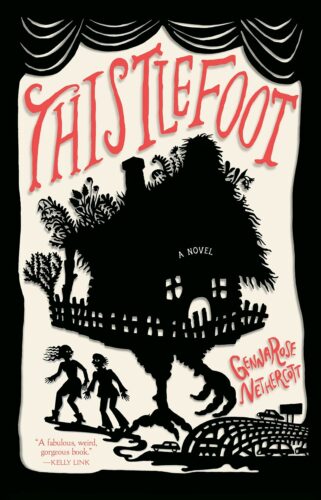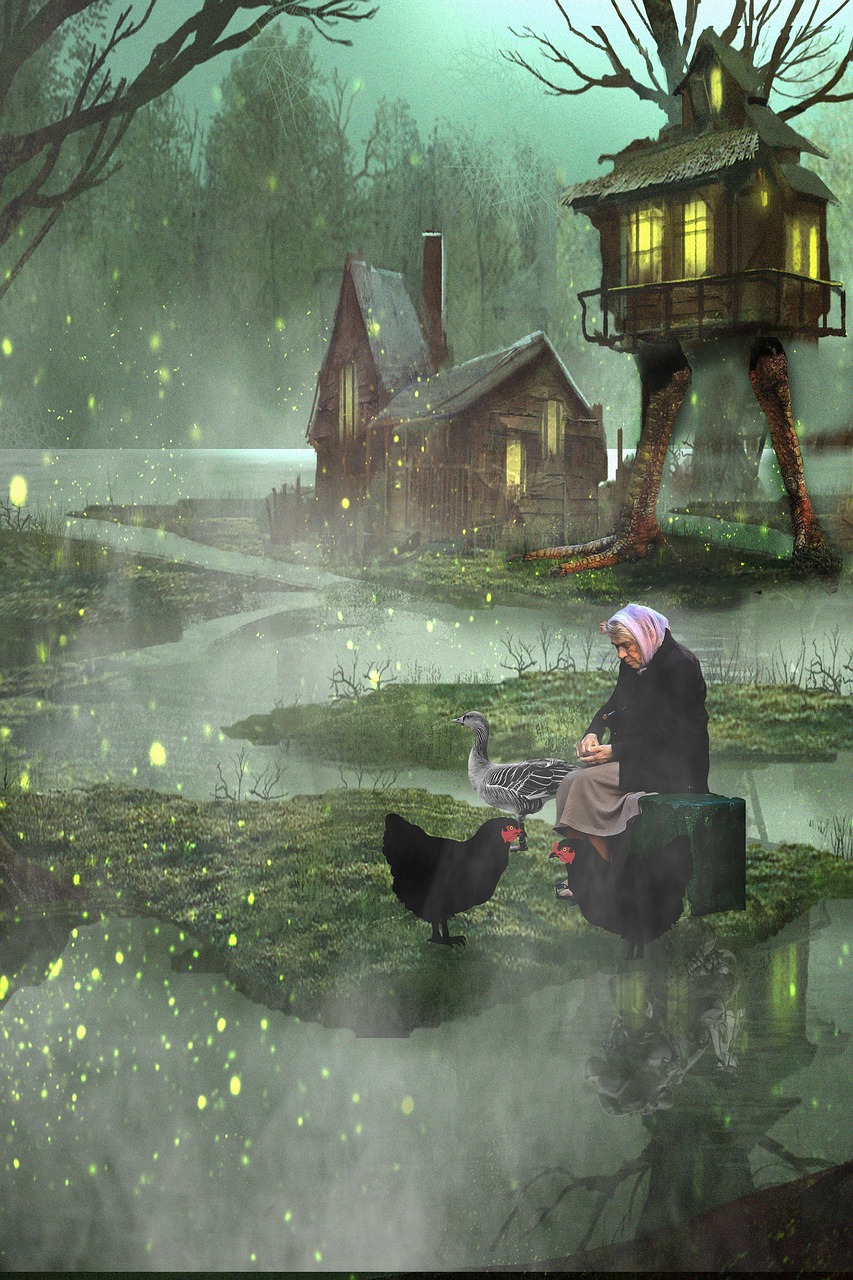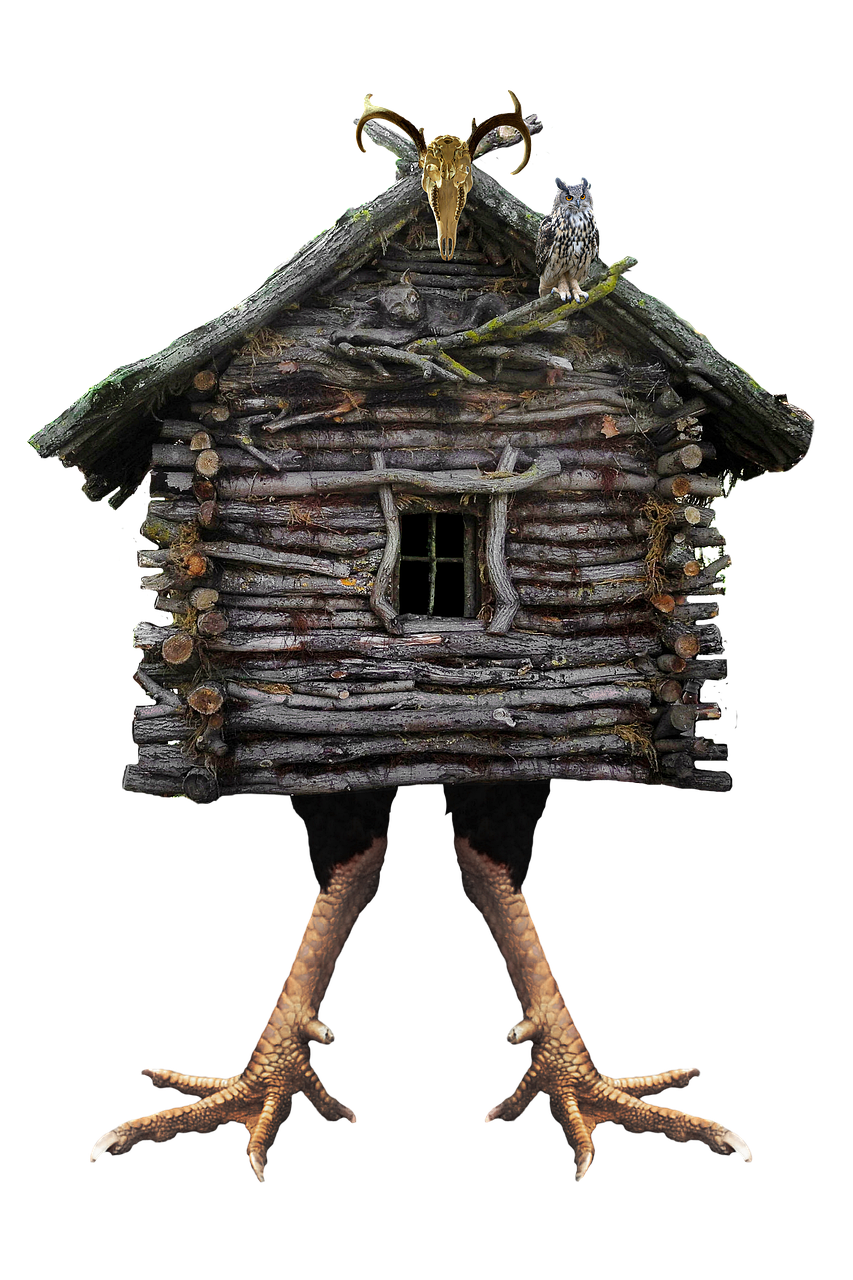 Chicken Houses and Scattershot Plots
Chicken Houses and Scattershot Plots
Author: Genna Rose Nethercott
Baba Yaga is a witch who lives in a house that walks on chicken legs. Her powers are both weird and wonderful, her abilities uncanny, her morality an ephemeral thing. One day she will cure you, the next she’ll strip the skin from your body to make her daughters’ slippers. Her legacy is one of magic, but it’s also one of generational trauma, of haunted memories, of death and destruction.
Today, Baba Yaga has two flighty descendants. Isaac Yaga, aka Chameleon Man, was born with the power to emulate anyone, to shed his own skin and walk into the mannerisms of a stranger. He uses this power to lie and cheat, to hitch-rides on trains and slink through bars. He cannot outrun his past though, or his fear of failing those he loves.
Bellatine Yaga is a lonely carpenter, a woman who can make things come alive with her hands. She has feared her powers since they got out of hand in her childhood. Now she touches nothing but wood, nothing that could ever come alive – like her parents’ old puppets.
The estranged siblings are brought together when Thistlefoot, Baba Yaga’s chicken-footed-house, arrives in the States: their long-lost inheritance. The magical house calms the burning in Bellatine’s hands, but Isaac sees it as just another way to profit. He talks his sister into revamping their parents traveling puppet show, earning enough money from Thistlefoot that he will be set for life, and she can keep the house. The issue? A desperately evil figure called The Long Shadow Man is following the house, intent on destroying it and the Yaga legacy.
I wanted desperately to love this book. I adore folklore retellings, especially those that feature uncanny, weird legends. Thistlefoot, however, fails on so many levels, and it’s not long before we realize that Baba Yaga, the impetus for our collective interest, is NOT a character in this story. Instead, we get the two siblings, who are so focused on their own naval gazing and nascent problems that it takes them a long time to notice the Long Shadow Man and the string of carnage that follows their traveling house.
Isaac is forever self-doubting, acting the tough man and yet captivated by a moment in time when his best friend died. This takes up a LOT of page space, and we’re soon tired of this whiny character whose answer to everything is to run and ditch his family. Bellatine is little better. We get pages and pages and pages about the tingling in her hands and the fear, evoked by bits and pieces of memories. By the time we finally get the why, we’re beyond bored and uninterested. Hundreds of pages have slipped by with very little happening very slowly and with very overwrought prose.
The modern world itself is a bad setting for Yaga’s house. While the chapters narrated by the house itself capture the charm, the mystery, the old timey charisma of complicated folk tales and layers of weird lies, Isaac and Bellatine are surprisingly unmagical. When they run into a literal busload of goth teenagers who parade a horse skull and claim to know the score, the modern goes from unimaginative to out-right dumb. We don’t really get any explanation for the magic in this world, where apparently walking houses aren’t that unusual. Yaga’s magic itself is taken for granted, and while everything else is overexplained (Isaac’s commitment issues, Bellatine’s fear of touch, the bus’s black paint and zip-tied horse skull), the magic is forgotten. An aside. It happens, but not in the way of mystery. More in the way of sloppy plotting. If there are rules in this world, with this magic, we don’t know them. Soon we don’t care. Anything to get away from the whining of our two uninspired Yagas, who would doubtless have been utter disappointments to their strong willed, take-no-shit, survivor of an ancestor.
And that takes me back to the bus load of “helping teens.” We have badass Shona, the leader. She’s a badass because she wears dark lipstick. Then we have Rummy, who’s a dude who’s there, and then Sparrow, who is also just kinda there. They’re all poorly introduced. They come out of nowhere, dump a big explanation / warning about the Long Shadow Man, which of course Isaac and Bellatine accept at face value, and then they come briefly into the hectic clusterfuck of an ending. But who are they? How did they become aware of this? How do they make money to travel in this goth school bus, and how the heck did they get a bus and a horse skull anyway? How do they have knowledge of magic and herbs and all this supernatural old-world stuff? We’ll never find out, but we’ll get plenty of stupid moments of insipid dialogue and a half-hearted romance between Shona and Isaac.
Oh . . . and as if five characters weren’t enough already, Bellatine accidentally brings a pretty statue alive. This statue (Winifried) also becomes another character, who is slightly more interesting, albeit equally unexplained. She’ll get to be Bellatine’s girlfriend, because of course everyone has time for complicated romances as they are fighting for their life. But first Bellatine has to be weird about it and there must be several awkward misunderstandings and a near death experience before the romance can thrive. Because, yeah, why not throw more chaos into the plot.
Finally, we get a bit of an answer for the Long Shadow Man and the why behind his quest of destruction. The base idea involves historical memory, genocide, and the pogroms in Eastern Europe. It’s an intensely interesting take on the history, tying in the fate of Baba Yaga with the rise of antisemitism in Russia and the horrifying genocides that followed. However, the idea is not enough to save the story, and the ending becomes confusing as the characters fight not a monster, but an idea. Perhaps if we’d had as much time with the revelation, with the “why” and “what” behind the Long Shadow Man and his power, it could have made sense. But the book chooses a bad time to speed up, and what could be powerful and emotive is just fast and sloppy, leaving us with more questions than answers. Our annoying characters thwart any real moments with their own silly, modern baggage that is nowhere as impactful as the story of the house and Baba Yaga.
In the end, the only redemption for the story, beyond the awesome cover photo, are the few brief chapters where the house narrators, capturing the sinister mystery of the original folklore. There were too many self-absorb characters, too few explanations around what really matters (i.e. the magic), and the people who deserved empathy (Baba Yaga and her long-ago village) never actually appeared in the story. Not recommended.
– Frances Carden
Follow my reviews on Twitter at: https://twitter.com/xombie_mistress
Follow my reviews on Facebook at: https://www.facebook.com/FrancesReviews
- Book Vs Movie: The Shining - April 6, 2020
- Thankful For Great Cozy Mysteries - December 13, 2019
- Cozy Mysteries for a Perfect Fall - October 20, 2019




